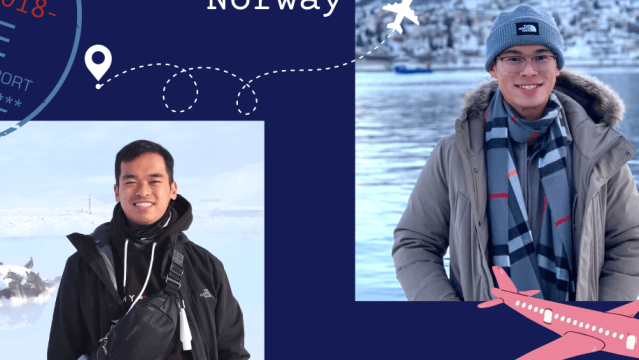
Global Exposure in the New Normal Part 1: Norway & The Netherlands
Lye Jia Wei and Quok Juin ventured overseas for the first time since the pandemic for their global exposure programmes in Norway and The Netherlands, respectively. Both share their experiences of going on exchange during the pandemic, as well as money-saving tips for those keen on going for exchange.
Term Two of Academic Year (AY) 2021/22 at SMU marked a major milestone; a first batch of students ventured overseas for the first time since its International Student Exchange Programme (ISEP) was suspended in 2020 as the world grappled with the Covid-19 health crisis. Despite some lingering uncertainties over the pandemic as travelling restrictions were being lifted, 458 SMU students gamely participated in ISEP with Partner Universities (PUs) in 29 countries, including 20 students who took up virtual ISEP with PUs in China, Taiwan and the Philippines where travel restrictions remained at the beginning of the year. Let’s hear what motivated Lye Jia Wei and Quok Juin, both from the SMU School of Computing and Information Systems, to sign up for ISEP, as well as pick up some travelling and budgeting tips from them.
Lye Jia Wei, graduate, SMU School of Computing and Information Systems
Host Country: Norway
Host University: BI Norwegian Business School – Oslo Campus
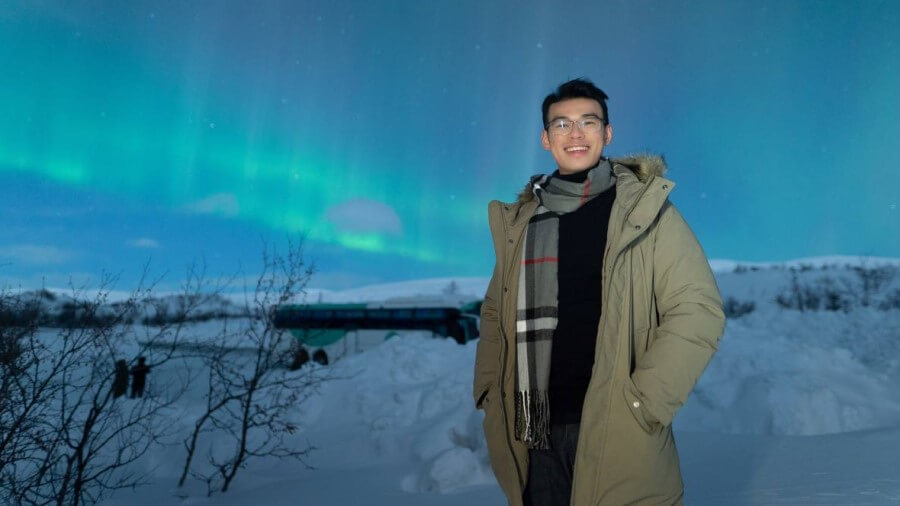
Q:
How would you describe travelling overseas again after not having travelled for some 1.5 years?
A:
It felt surreal to be travelling amidst the ongoing pandemic, on a flight with less than 10 passengers back in January 2022. After not travelling for the past 1.5 years, being able to try new food and experience new sports in a new environment was a breath of fresh air.
Q:
Given the uncertainty, what additional safeguards did you take when preparing for the trip?
A:
I chose air tickets with refundable options and only purchased them closer to the travel dates in case the situation changes. The student housing provider in Norway was also very understanding and allowed me to sign the housing contract two weeks before moving in.
Q:
What were some safe management measures taken at your host university?
A:
The orientation programme was held online due to the emergence of the Omicron variant at that point in time and certain physical activities were postponed. Classes were offered online for the first few weeks but the option of attending physical classes was subsequently made available. ART test kits were available free-of-charge for students at the front desk and there was mandatory mask-wearing in classrooms.
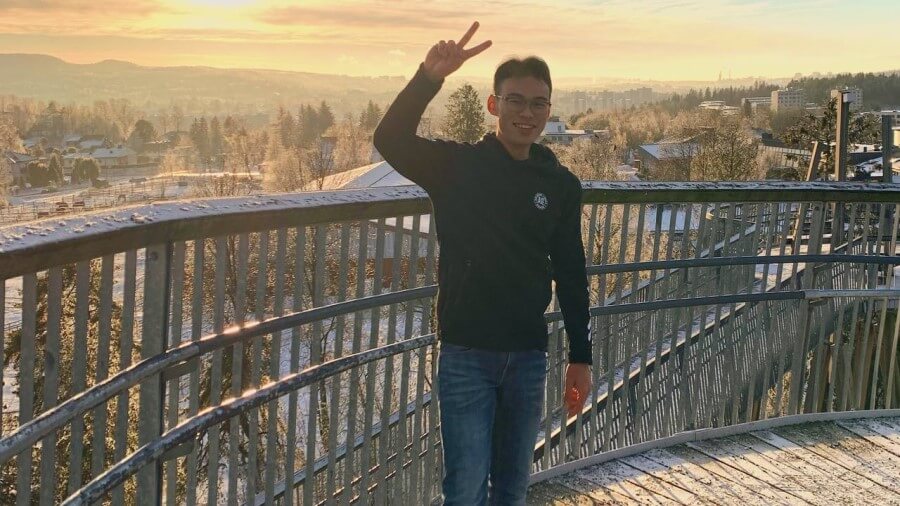
Q:
Can you share your total expenses for the entire term and other related costs?
A:
I spent S$12,000 in total. Approximately S$5,000 went to rent, S$3,000 to food and necessities, S$1,500 on air tickets and S$2,500 on additional trips overseas. I managed my budget by doing extensive research beforehand and eating out less frequently.
Oslo has one of the highest cost-of-living standards in the world and eating out costs at least S$30 for a basic meal. Hence, it was necessary for me to cook most meals at home and pack lunches to school. In Singapore, we are very used to socialising over meals and a lifestyle adjustment is needed. That said, I had plenty of fun dinner parties at my hostel where international students cooked and shared dishes from their country.
Q:
Any money-saving tips for fellow SMU students who aspire to go for ISEP?
A:
Learn to cook! This is essential as eating out is rather expensive so cooking your own food can save you a lot of money. It was also fun seeking out independent grocery stores that offered vegetables and fruits at much lower prices than chain supermarkets. I also kept a lookout for food products close to expiry as many supermarkets in Norway offer these at 40 to 60 percent off their regular prices.
Quok Juin, graduate, School of Computing and Information Systems
Host Country: The Netherlands
Host University: University of Amsterdam
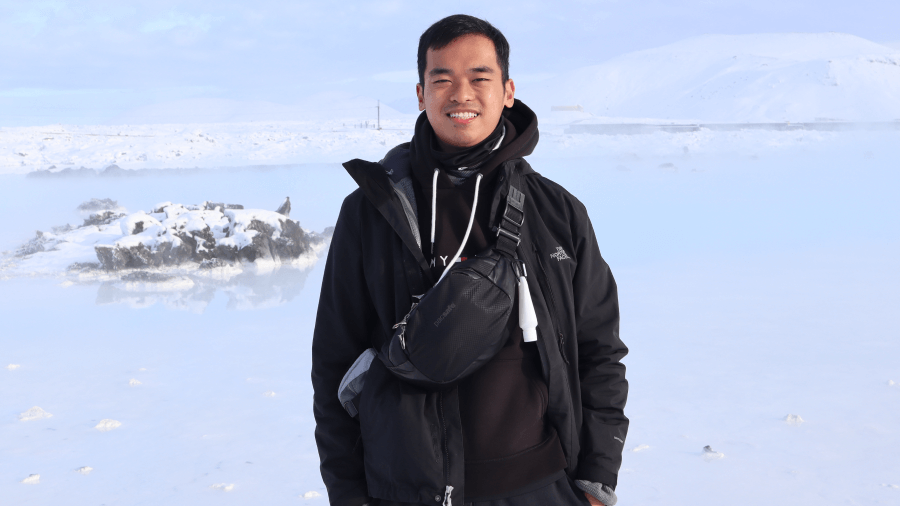
Q:
What motivated you to go overseas for ISEP, despite the persistence of Covid-19 globally?
A:
I value being able to live overseas and experience the hallmark global exposure of an SMU education. Many European countries had already accepted the coronavirus as endemic and vaccines had proven to be effective, so I did not let the lingering pandemic restrict me from going on the ISEP.
Q:
Given the uncertainty, what additional safeguards did you take when preparing for the trip?
A:
I bought a refundable air ticket and tried to keep purchases flexible. However, there was a non-refundable administrative fee when sourcing for accommodation through my host university. It was still much better than sourcing for accommodations yourself as it would be very time consuming and much more expensive.
Q:
What were some safe management measures taken at your host university?
A:
My host university implemented safe distancing measures similar to those in Singapore, as well as mask-wearing, which was later eased in line with local requirements.
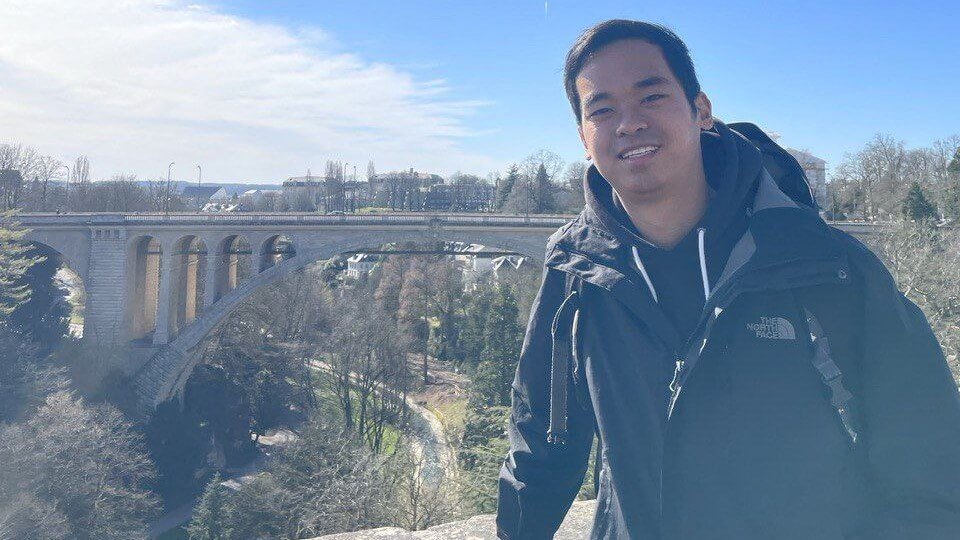
Q:
Can you share your total expenses for the entire term and other related costs?
A:
My total expenses came up to about S$17,000 – S$4,000 went to rent, S$6,000 went to food and necessities, S$1,000 on air tickets and S$6,000 on additional trips out of Amsterdam. The cost of living in Amsterdam is higher than in Singapore and if you are used to an Asian diet, Asian foodstuff can cost much more here. I also took some fairly costly trips to places such as Iceland.
Q:
Any money-saving tips for fellow SMU students who aspire to go for ISEP?
A:
If you’re heading to Amsterdam, try getting free supermarket discount cards from the cashiers as these cards unlock a lot of promotions. There are also apps that allow you to buy food cheaply – you’ll just need to change your country settings in your phone to Netherlands to be able to download them.
You can also use apps to set limit orders to buy Euros at a cheaper rate instead of the market rate and use these apps for payment directly – you don’t really need cash in Amsterdam as cards are accepted everywhere.
When travelling look for budget carriers or connecting flights on full-service carriers, they tend to be cheaper than direct flights and when going on a group trip, consider sharing one bag for check-in to save on baggage fee costs.



